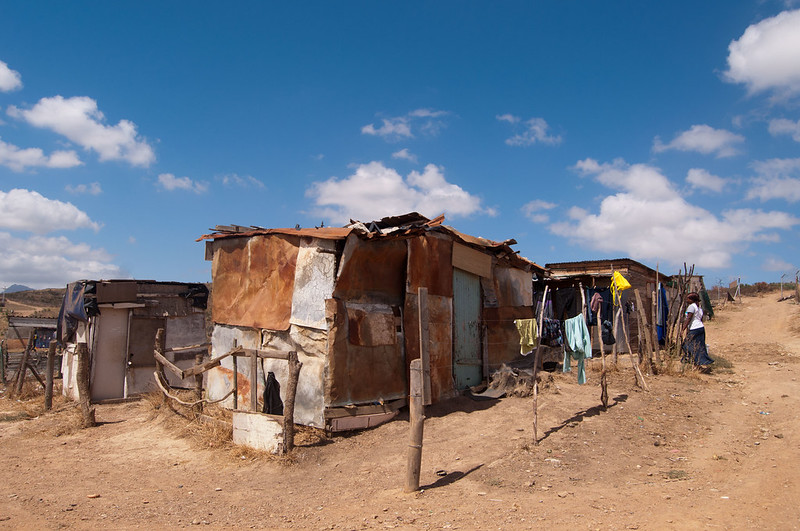Fire Prevention in South Africa: The Lumkani Lifesaving Innovation
 Across the globe, 1 billion people live in informal settlements, spaces often marked by overcrowding, flammable materials and poor infrastructure. In South Africa, townships and informal communities regularly face the deadly risk of shack fires. In 2022, Cape Town alone reported 190 deaths due to these fires. These disasters destroy not only homes but also essential documents, medicines and educational materials, deepening the cycle of poverty for already vulnerable families. Lumkani, a social enterprise based in Cape Town, is rethinking fire prevention for low-income communities. By using heat-sensitive, networked early warning systems, the company equips families with the tools they need to survive fires and break the cycle of poverty they often leave behind.
Across the globe, 1 billion people live in informal settlements, spaces often marked by overcrowding, flammable materials and poor infrastructure. In South Africa, townships and informal communities regularly face the deadly risk of shack fires. In 2022, Cape Town alone reported 190 deaths due to these fires. These disasters destroy not only homes but also essential documents, medicines and educational materials, deepening the cycle of poverty for already vulnerable families. Lumkani, a social enterprise based in Cape Town, is rethinking fire prevention for low-income communities. By using heat-sensitive, networked early warning systems, the company equips families with the tools they need to survive fires and break the cycle of poverty they often leave behind.
The Overlooked Crisis of Shack Fires
Fires remain some of the most destructive yet neglected challenges in informal settlements. In places like Khayelitsha—one of Cape Town’s largest townships—shack fires commonly break out during colder months when residents use open flames, paraffin stoves or makeshift heaters to stay warm. Dust, steam and proximity to cooking areas often cause traditional smoke detectors to fail, resulting in frequent false alarms or abandonment. Limited space between dwellings and poor access to firefighting services allow a single fire to engulf entire neighborhoods within minutes. Beyond the immediate destruction, fires severely impact household economies. Fires wipe out everything from income sources to the legal IDs families need to access health care or education. For families living day-to-day, recovery becomes nearly impossible.
Lumkani’s Heat Sensor Network
Founded in 2014, Lumkani developed a low-cost, heat-based detector designed specifically for fire prevention in shack environments. Unlike traditional smoke detectors, Lumkani’s sensors are triggered by rapid increases in temperature, which is a more reliable fire indicator in informal housing. What makes Lumkani unique is its radio frequency network. When one device is triggered, it automatically alerts others within a 60-meter radius, giving entire communities critical seconds or minutes to evacuate or respond before the fire spreads. Lumkani devices also send SMS alerts to residents and designated community leaders through a central database. The fire prevention system is affordable and scalable, with devices costing around $10 and has been rolled out across parts of Cape Town, Johannesburg and Durban.
Results That Save Lives
According to Hollard, since rolling out Lumkani, the spread of 150 fires in South Africa has been limited. In collaboration with the International Red Cross, the Fire Sensors Initiative distributed 900 units. The results point to meaningful progress in saving lives and property. Lumkani also introduced micro-insurance for informal homes—one of the first of its kind in South Africa. For just $1.60, families can insure their homes against fire damage, enabling quicker recovery after disaster. This approach empowers low-income households not only to survive fires but to recover from them with dignity.
Why Fire Prevention Matters in the Fight Against Poverty
Poverty involves more than income; it includes constant exposure to risk. Shack fires in informal settlements are not random—they are predictable and preventable. When entire communities burn without warning, the long-term consequences trap families in poverty for generations. Lumkani offers a clear solution. By combining smart, locally tailored technology with community trust, this innovation saves lives and shields hard-earned progress from going up in flames. As global efforts to reduce poverty continue, solutions like Lumkani’s show that prevention may be just as powerful as direct aid. Sometimes, a $10 sensor could change everything.
– Rebecca Lee
Rebecca s based in Scotland and focuses on Technology and Solutions for The Borgen Project.
Photo: Flickr
